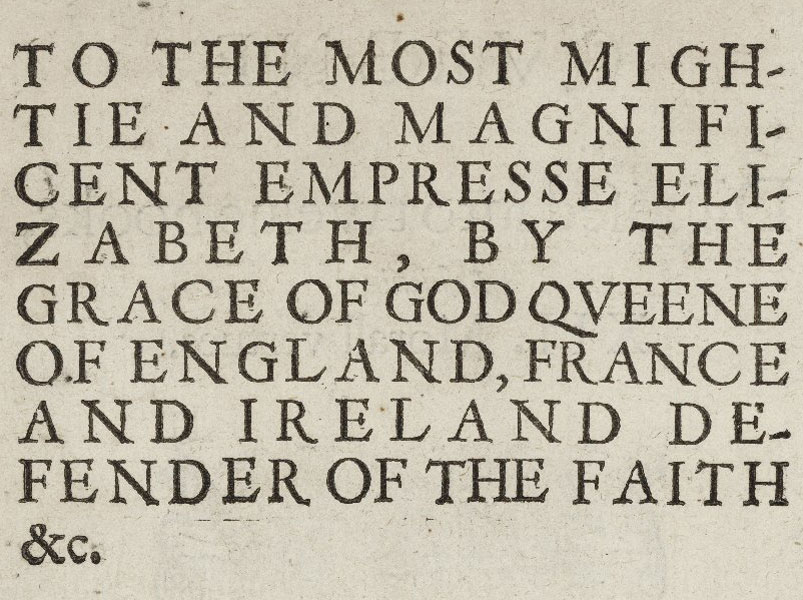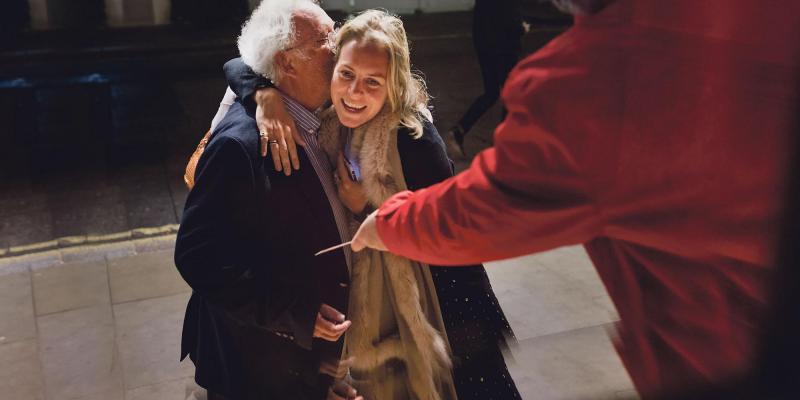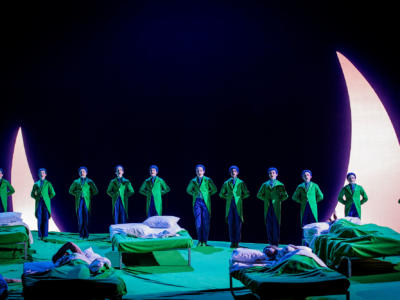What is the Meaning of ‘Gloriana’?
Originally composed by Benjamin Britten for the coronation of Queen Elizabeth II, Gloriana was revived by ENO in concert form to celebrate the life of the monarch. But what are the origins of this rarely staged and yet superbly compelling work and and what is the meaning of ‘Gloriana’?
Gloriana in Edmund Spenser’s The Faerie Queene (1590)
When deciding on the content and title for his opera, Britten took inspiration from another great figure of English culture, Edmund Spenser.
Gloriana is the alternative name for the eponymous but never seen Faerie Queene in Spenser’s epic poem, whose castle represents the end destination for many of the work’s characters. Spenser created the name from an elaborated form of the Latin word ‘gloria’, meaning glory.
Why was Queen Elizabeth I called Gloriana?
Who is Gloriana in the non-fictional world? It is said that The Faerie Queene was written to pay tribute to Queen Elizabeth I, a virgin queen who saw herself as an embodiment of English victories.
Although Spenser already had a patron in Sir Walter Raleigh, many have concluded that The Faerie Queen was in part an attempt to secure a lucrative royal patronage from Queen Elizabeth I. As such, the entire piece was positioned as an allegory for her reign and the political turmoil facing England, in which the monarch could find herself represented by the all-powerful Gloriana. Gloriana then became a popular name given Queen Elizabeth I.
The decision to portray Gloriana as a mysterious, almost mythical, presence throughout is considered practical as much practical as stylistic. It ensured Spenser never fell afoul of depicting the monarch in an unflattering light, which would ruin his affection-winning mission. Spenser’s plan worked – he received a lifetime royal pension of £50 per year and The Faerie Queen went on to become a foundational piece of English Literature.
Benjamin Britten’s opera about Queen Elizabeth
First performed six days after the Coronation of Queen Elizabeth II in 1953, Gloriana’s plot follows the fascinating relationship between Queen Elizabeth II’s namesake and predecessor and Robert Devereux, the Earl of Essex.
Based on Lytton Strachey’s 1928 book Elizabeth and Essex: A Tragic History, Britten’s soprano Queen Elizabeth I is a radical departure from that in Spenser’s epic poem. Instead, we see a monarch steeped in human flaws, confused between a desire to fulfil her God-given duty and a growing romantic connection with Essex.
Queen Elizabeth II was ‘flattered and delighted’ by a private preview of the opera. However, contemporary audiences found it shocking. To many, the monarch, whether that be Queen Elizabeth I or II, was still the idealised Gloriana of Spenser’s epic, and not someone with human flaws. As a result, the first performance received a muted reaction, and limited desire for repeat performances.
Gloriana has since become a hidden gem in Britten’s well-known and much-loved collection of works. It injects life and humanity into one of the great figures of English history, and while full of courtly pomp, we are taken beyond the excess and ceremony of monarchy, and into a private world in which the sovereign is as susceptible to desires and emotions as her subjects.
Resurfacing Gloriana for another monarchical milestone
To celebrate the life of Queen Elizabeth II, the ENO will be staging a special concert performance of Gloriana, the first time ENO has done so since 1984. Featuring Christine Rice as Elizabeth I and Robert Murray as the Earl of Essex, the concert performance also includes the ENO Orchestra and Chorus, resulting in a grand and epic staging worthy of a time of national celebration.
Gloriana was performed at the London Coliseum on Thursday, 8 December 2022.






